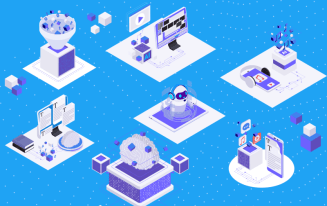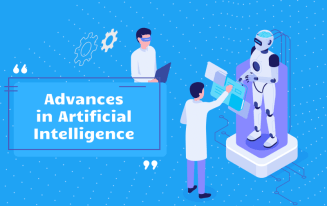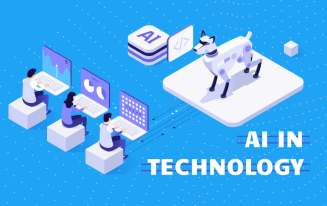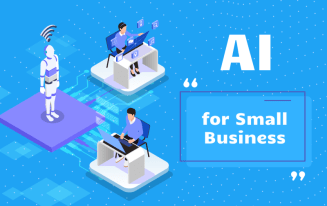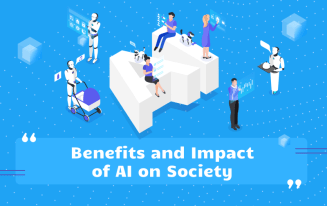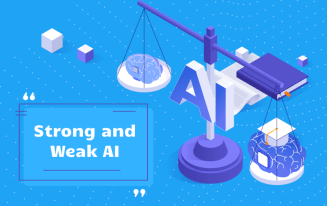How does Artificial Intelligence work?
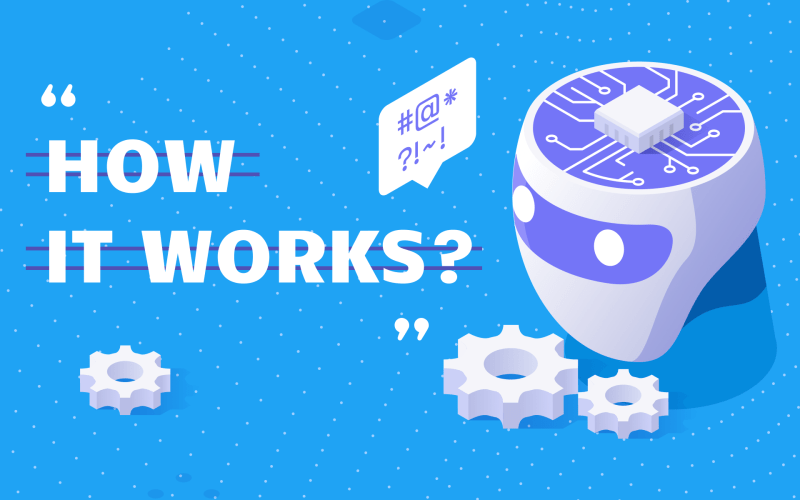
Part of what will help with the learning curve around AI tech is proper education on how artificial intelligence works. You can look at this topic in many different ways, but for the sake of mass adoption, it has to be simplified for easy digestion. In just a few years time, AI has evolved immensely by improving workflows in the corporate world, as well as bridging gaps in customer behavior. The technology can simulate many unique elements of human intelligence, which shines through in algorithms, robotics, and computers. Keep reading through this article to delve into AI's mechanics, programming, and creative aspects.

Employ the full range of AI advantages with AImReply and express your thoughts faultlessly in every email.
Table of Content
Although developments in artificial intelligence are becoming more simplified, there are a few core elements behind the question: How does AI work? It doesn’t have to be a complicated topic, as it primarily considers training models with data sets to recognize patterns. The capabilities of data analysis are rapidly expanding as we speak.
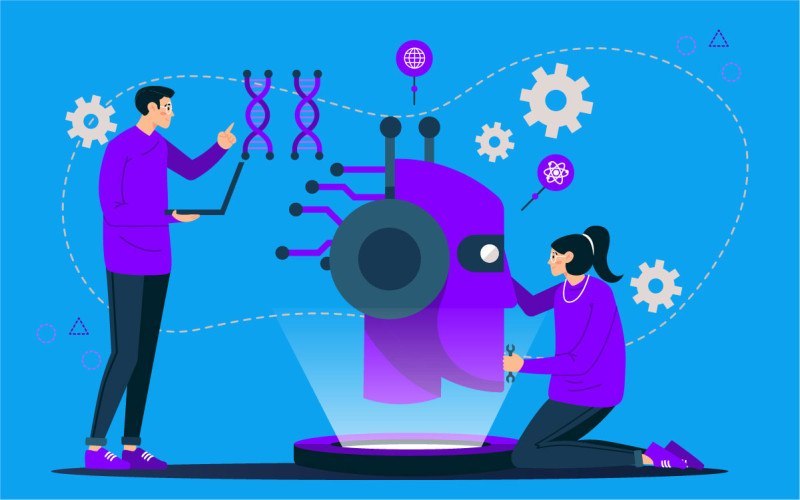
A few technologies that make up the whole of AI handle their own unique processes:
- Machine learning (ML) can analyze data in many different ways
- Natural language processing (NLP) gives machines the ability to comprehend human language
- Deep learning helps with the emulation of brain neural networks
- Computer vision capabilities are able to interpret information such as videos and images
- With predictive analytics, AI can execute on real-time decision-making by utilizing data
When you combine all of this, AI's applications in different types of technologies are nearly endless. As the applications stack up, people will see use cases expand, leading to higher adoption rates.
In the comprehensive list below, you can get a look at how AI works and the steps needed to create an AI system. This approach will not only answer the question: How does an AI work, but it will give an all-encompassing understanding of the technology.
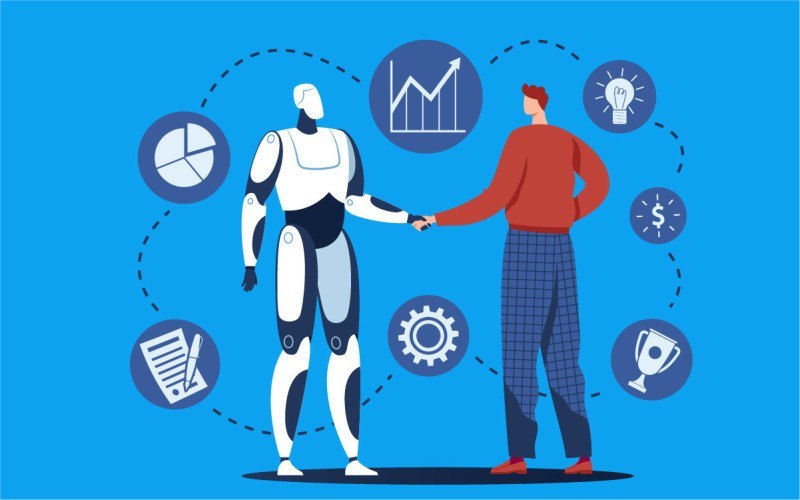
Creating an AI system
As more people start to learn the basics of artificial intelligence, many are transitioning to how AI tools are created. This could entail a long road ahead for new users, but the information is entirely digestible for the average user.
Of course, the core premise may be the same, but not all AI technologies work in the same way. With a wide array of tools, products, and services, AI tools can be put together to bring something unique to the market. Nevertheless, for those wondering how is AI programmed, the following steps will cover your bases.
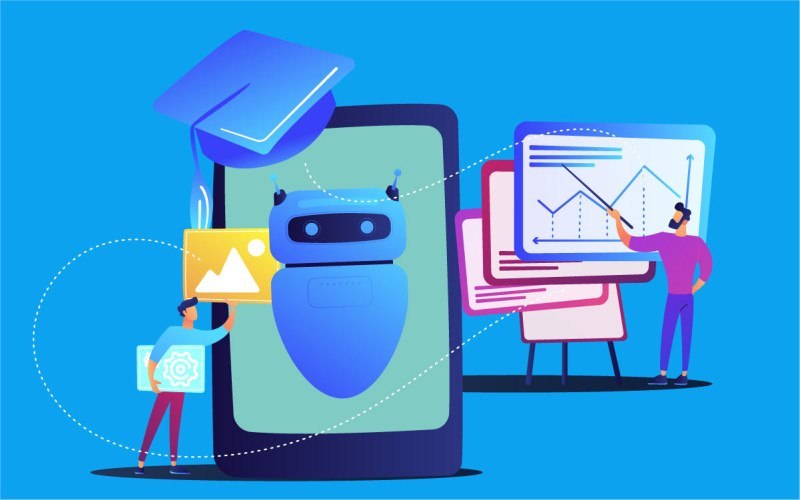
Before you dive headfirst into creating an AI-driven product or tool, you want to identify a problem that could benefit from the technology. Considering the stage we’re in with the tech and its use cases, there’s plenty of room for innovation.
The first step is to target the pain points of users in your niche and then define the value proposition and structure the idea for your product around that. Problem-solving aspects should be highlighted as selling points for any AI, and then it’s time to work on product drafts. Additionally, AI email writers like AImReply have revolutionized email communication, offering personalized responses without the need for manual input, which can significantly streamline workflow processes.
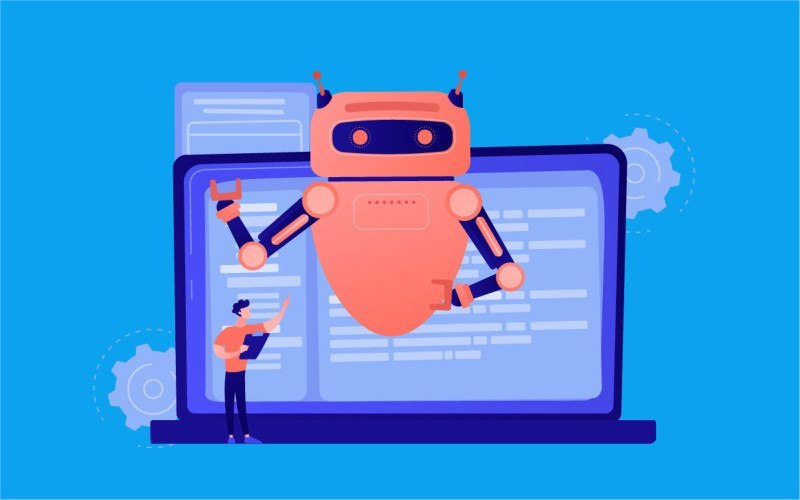
It needs to have access to quality data sources to develop an AI-driven product that's effective and contests with the best of them. Keep in mind that these data sources must be relevant to the identified problem for them to be effective.
It should be noted that data can be classified as either structured or unstructured, and clearly defined, searchable data is what AI tools need. Before training models begin, the data has to be cleaned, processed, and properly stored. Taking these steps helps to minimize errors and improve the quality of user outcomes.
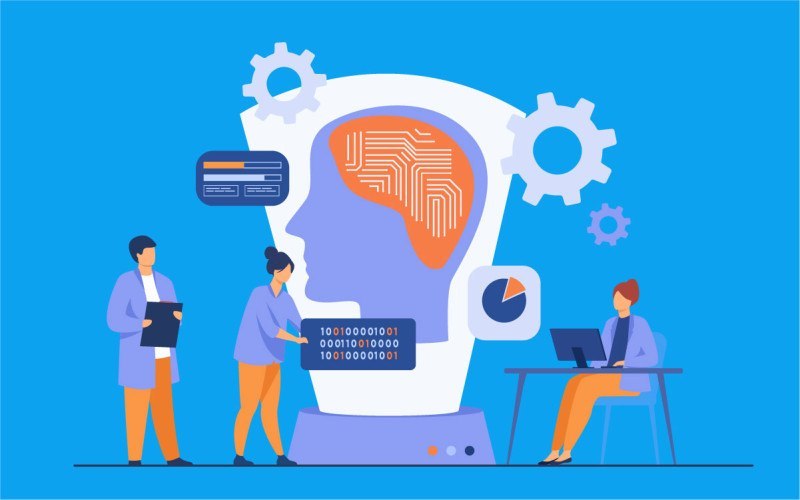
This is a bit simpler than you might expect, but algorithms are a defining component in how tasks are performed through artificial intelligence. For those who aren’t familiar with the technicalities behind algorithms, they’re merely math instructions that help guide the actions of AI.
For optimal machine learning, AI tools require prediction and classification algorithms to be a part of the process. This approach with algorithms gives AI models the ability to learn from the datasets you’re working with. Now that we’re a few steps in on how artificial intelligence work is done, the ecosystem of it all starts to make a little more sense.
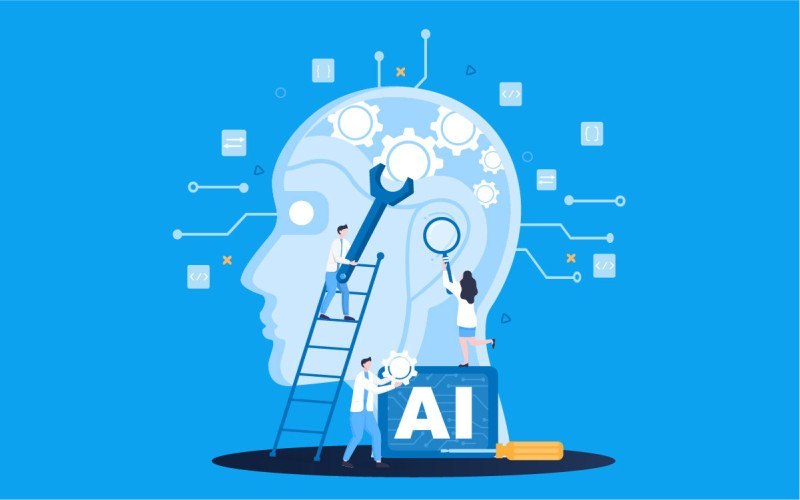
Through the collected data, you can train an algorithm to optimize for accuracy based on the data. At this point, providing additional data points is what refines and enhances an AI model’s overall accuracy on a particular input from the user. AI learns to optimize its performance based on collected data, continually refining its abilities over time.
Defining a minimum acceptable accuracy threshold for the AI model is also crucial. From here, the actions should be decided based on the established accuracy threshold. This helps to provide the most accurate information possible through the datasets you've provided.
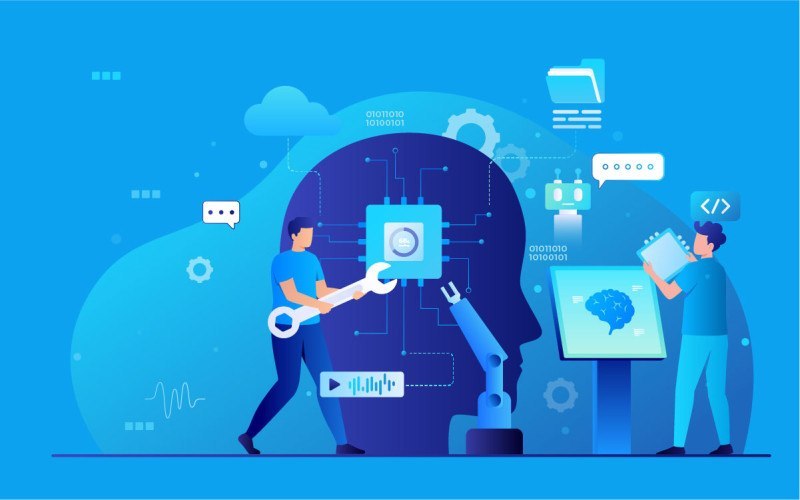
Regarding the platform, AI tools need a framework, and this can be accomplished in-house or through the cloud. As usual, there are pros and cons on both sides. Below, you can get a look at a few aspects that make both frameworks stand out on their own.
Notable in-house frameworks include:
- Tensorflow
- Pytorch
- Scikit
Cloud frameworks that are widely used for some of the following reasons:
- Faster model training and deployment
- Graphical interfaces
- Jupyter Notebooks
- And more
Once this is sorted out, the AI will need a programming language, and a handful are known to be popular for this type of tech. C++, Python, and Java are a couple of common choices. Each are chosen for a variety of reasons, some of which include easy syntax, extensive ML libraries, and overall simplicity. The right choice comes down to the goals and needs surrounding the AI project.
At this point, the tool can be prepared for deployment, but the work is far from over. In a similar fashion to many other technologies, the tool will need to be monitored on a consistent basis and updated from time to time.
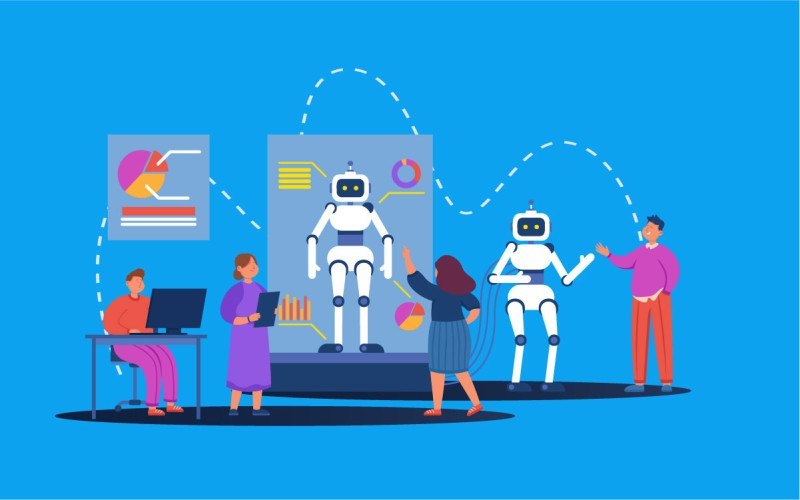
Expanding AI’s capabilities
New developments in artificial intelligence is an area that'll never sleep. The public is catching wind of news on the topic on what seems like a daily basis, and this is for a good reason. As artificial intelligence capabilities continue to expand before our eyes, we'll see the list of use cases expand.
This increasing interest in AI from business sectors and the public is only propelling the technology forward faster than we expected. Even if this comes with a bit of uncertainty, there are many AI tools on the market that have brought immense benefits to the workforce.
Part of what sells the concept of AI tools is its ability to increase efficiency and save people time. In the corporate world, there are many mundane tasks that take up hours out of the workday. This inherently delays more important tasks, and for years, many of these repetitive duties haven’t seen an innovative fix to their manual nature.
This isn't the case anymore, as many companies take the lead in their niche to deliver an AI product that solves a big or small problem. AImReply understands this wholeheartedly, and this notion acts as the foundation for why we created this AI-driven tool.
Understanding the difference between strong and weak AI is crucial in comprehending the scope of artificial intelligence's capabilities.
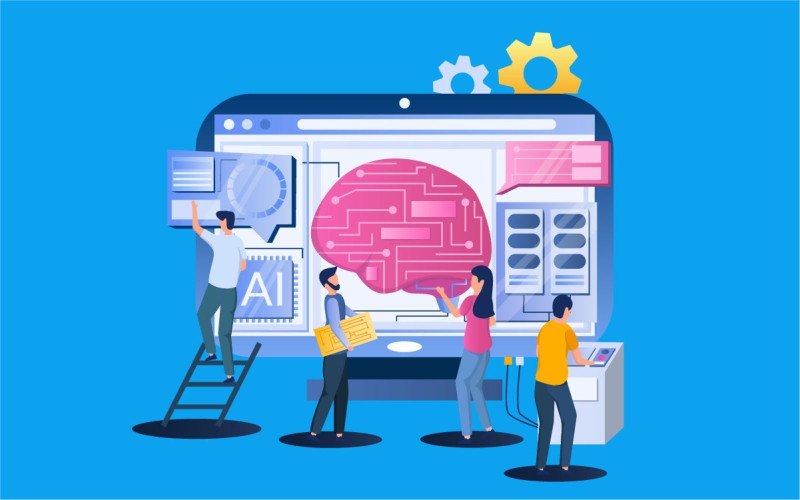
Final Thoughts
Although the market for AI tech is expanding at a very fast rate, some aspects are improving with a slow burn. Niche areas are bound to excel with AI tech before others, but understanding how it works is the first step toward creating problem-solving solutions.
For those in the workforce, this is where AImReply can offer some help. The repetitive nuisance of replying to a constant onslaught of emails is no longer an issue with the help of our AI tool. Acting as a personal AI-powered email assistant, you’ll never have to take time out to craft a personal reply ever again.
On top of that, we also offer multiple email management solutions. AImReply is a leading force in mitigating downtime in the workforce by eliminating the hassle of managing incoming and outgoing emails. This article dove into the question of how AI is created and provides a comprehensive answer that will point anyone in the right direction.

October 02, 2023
- 10 min
- 113
One of the main topics surrounding this evolving technology are the many uses for AI. With an ever-expanding list of active and potential use cases, AI is finding its way into many different aspects of our lives. Whether from a personal or professional standpoint, artificial intelligence continues to prove its worth.
September 27, 2023
- 10 min
- 122
Even with the quick improvements we’ve recently seen with AI, those in the tech industry have their sights set on innovation. Now that the widespread capabilities of the tech are better understood, advancement in AI will only become increasingly rapid. For artificial intelligence to truly advance with success..
October 03, 2023
- 7 min
- 132
Artificial intelligence tech has been in the work for decades, but many people are just now taking an interest in understanding what the technology is. In the same vein, many people are pondering the place of artificial intelligence in technology overall. There are many questions floating around AI..






